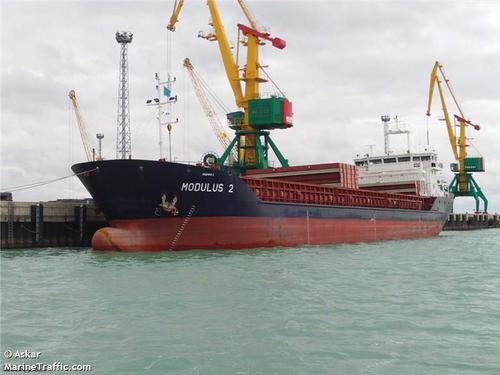ÐÎÑÑÈÉÑÊÈÉ ÏÐÎÔÅÑÑÈÎÍÀËÜÍÛÉ ÑÎÞÇ ÌÎÐßÊÎÂ
SEAFARERS' UNION OF RUSSIA
A NON-UNIONIZED SEAFARER
IS AN UNPROTECTED SEAFARER
Back
M/V "Modulus 2": boycott did not serve as a lesson to shipowner

A Collective Agreement on board is, in fact, the only thing that can protect seafarers, because often they have neither rights nor guarantees, and there is no one to guard their interests. Unscrupulous companies avoid to conclude collective agreements with trade union and agree to negotiate provided their ship is boycotted at port in the country with a strong trade union movement. However, sometimes it does not mean that the shipowner has changed his mind and is really committed to respect the rights of seafarers and the rules of work in the international market.
One bright example is the case of the Russian-flagged ship “Modulus 2”, boycotted by Finnish dockers on December 14, 2018. The fact is that the registered under the Russian flag vessel is owned by the Turkish company “Albros”, such situation is deemed to be a double registration. The International Transport Workers' Federation (ITF) consider it a flag of convenience. The Rostov-based company OOO “ADORES”, acting for the Turkish shipowner in Russia, feared of the consequences and on the same day concluded an ITF Standard Collective Agreement for the M/V “Modulus 2” and entered into negotiations with the Seafarers' Union of Russia (SUR).
“Representatives of the company invited me to come to their office to discuss the signing of the agreement in relation to 14 Russian-flagged vessels,”- Leonid Glushak, Chairman of the Azov-Don Territorial Organization (ADTO) of SUR, said. “The negotiations were successful: we came to decision to sign the agreement upon the appropriate review and necessary amendments. We stayed in constant touch with the company's lawyer, we discussed the details of the document. However, after the New Year, OOO “ADORES” stopped answering our calls. Apparently, being caught under the strike, they were looking for the ways to get out of the situation as easy and cheap as possible. But as soon as the dockers completed loading and unloading operations, the shipowner decided that there was no need to enter into a collective agreement for his entire fleet under the flag of the Russian Federation – perhaps, it will work out all right next time. Probably, the company is not going to continue to comply with the regulations of Russian and international laws and to respect the rights of seafarers.
The Russian-flagged ships controlled by this company often call European ports, and in the future they will also be subjected to boycotts. “Perhaps this will force the shipowner to change his mind , and he will sign the collective agreement with SUR,” - Leonid Glushak noted, - «As for us, we are going to continue attempts to resume negotiations. I advise Russian seafarers before join these ships to join the SUR to have their rights secured”.
Up
